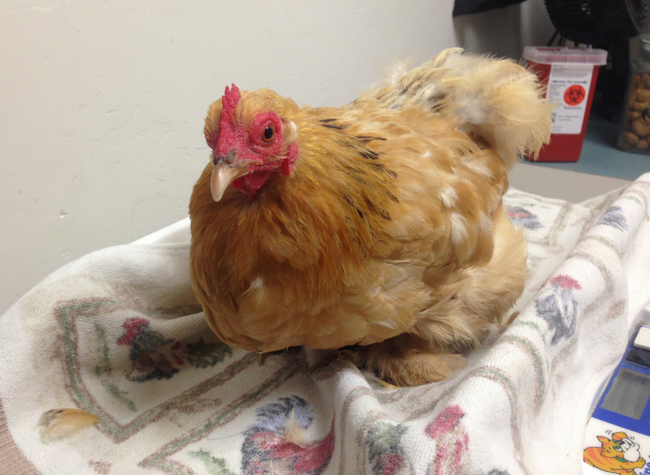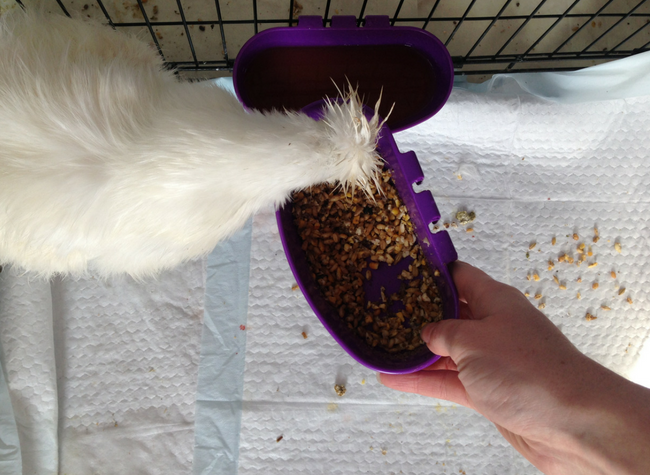
Whether you have 2 birds or 200, it’s important to know what to do if an illness arises in your flock!
Backyard chicken keeping is a lot of fun! But, sooner or later, chicken keepers will be faced with an illness that affects one or more birds in their flock. By acting quickly and being prepared, you will be better able to help your sick chicken and your whole flock.
In Part 1 of this series, we discussed sanitation and biosecurity practices that can help reduce the risk of an illness spreading through your flock. Today, we are going to talk about the do’s and don’ts of how and when to treat your sick chicken.
Do: Observe closely and write everything down
Once the sick chicken is isolated, keep a close eye on them. Monitor and write down their symptoms each day. Since symptoms can change gradually over time, having an accurate log will help you better observe changes. You will also want to record water and food intake, and any supplements or medications that are administered. These records will be very important as you do your research and consult with others in order to figure out exactly what your chicken is suffering from.

Don’t: Treat without a plan
Treating a sick chicken without a proper treatment plan can do more harm than good. Just like people, certain chicken viruses can become (and have become!) antibiotic-resistant. If possible, consult a vet and get a firm diagnosis before treating with any antibiotics or medications.
A lot of antibiotics and medications are not approved for use in poultry. Using medication that isn’t labeled for chickens without consulting a vet is considered “off-label” usage. If your vet does approve the medication for use on your chicken, it is then considered to be “extra-label” usage. Both off-label and extra-label use of medication can have long-term repercussions for the consumption of meat and eggs. Always discuss this with your vet before administering any medication.
Do: Supply vitamins, minerals and nutrient-rich foods
Provide your sick chicken with supportive therapies while it is sick. Electrolytes and vitamins can be added to drinking water. Crushed garlic, oregano, thyme and other herbal supplements may help boost the chicken’s immune system. Fermented feed is a great option as it is easier for the chicken to digest. The proteins, vitamins, and minerals in the feed become more bio-available through the fermentation process. Providing special snacks may also help increase your bird’s appetite. Yogurt, mealworms, cooked eggs, and cooked meat are great options that supply additional protein.

Don’t: Believe everything on the internet
The internet is a wonderful tool that connects us with a wealth of knowledge and opinions. Doing your own research on animal illnesses is part of being a responsible poultry owner. However, some sources are much better than others! Use credible, scholarly articles and sites when you do internet research.
We must realize that we can never truly diagnose an animal based on our observations and our research. It is important to realize that the presence of symptoms does not always equal a diagnosis.
I often see people misdiagnose illnesses on group forums, basing their assumptions on only a few symptoms that aren’t representative of the entire illness. For instance, I have seen people state that a chicken has Marek’s disease because it has splayed or weak legs. Splayed legs and leg weakness can be symptoms of Marek’s. However, the presence of one symptom simply isn’t enough to rule out other deficiencies or illnesses that have similar symptoms. It’s so important to contact a knowledgeable vet or your extension office and to do your own in-depth research using credible scholarly sources.
Do: Contact a knowledgeable vet
If you believe that your flock is suffering from a contagious illness (rather than a random and isolated illness) it may be time to contact a vet. A knowledgeable poultry vet can help you properly identify and diagnose the illness. They will help you establish a treatment plan, prescribe medications, and understand the long-term effects of the illness for your flock.
If there is not a knowledgeable poultry vet in your area, contact your local extension office. They can put you in touch with your state veterinarian who will help you with resources for testing and obtaining a necropsy if needed. Certain poultry diseases will also need to be reported to the state vet so that they can track outbreaks.












